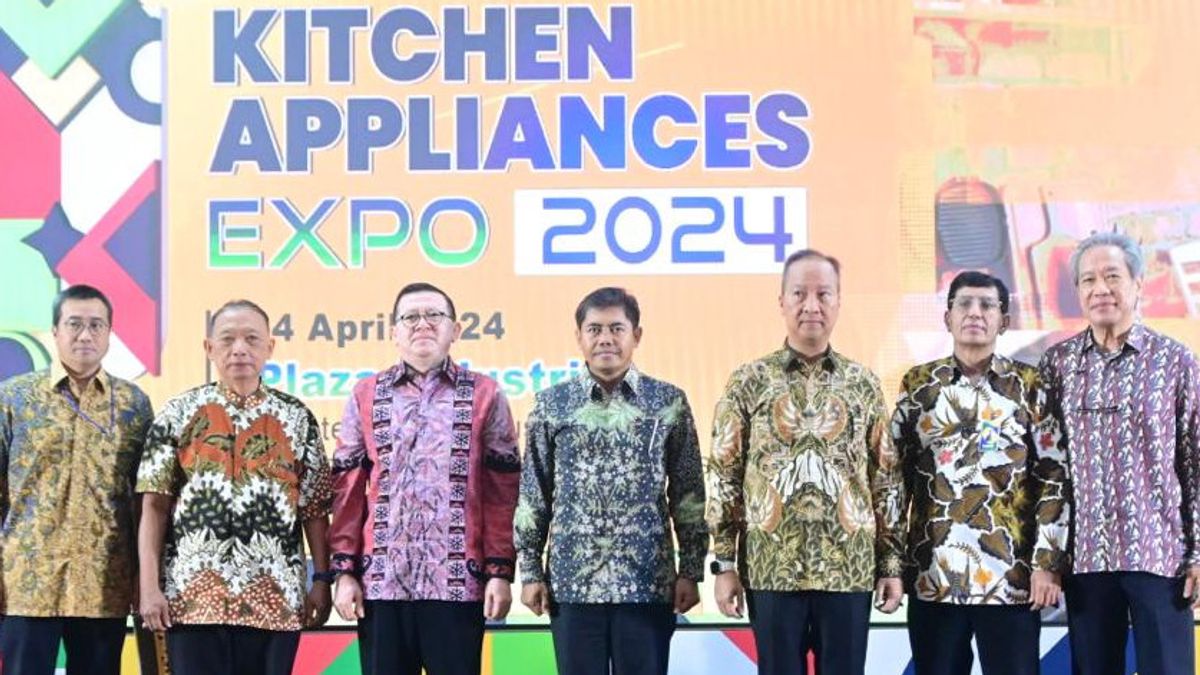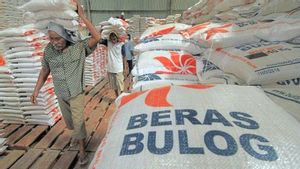JAKARTA - The Ministry of Industry through the Directorate General of Metal, Machinery, Transportation Equipment and Electronics (ILMATE) is holding an exhibition entitled Kitchen Appliances Expo 2024 located at Plaza Industri, Ministry of Industry Building, South Jakarta on April 1-4, 2024.
The Minister of Industry, Agus Gumiwang Kartasasmita when giving a speech at the exhibition said that the downstream sector of the metal industry is expected to provide "added value" as well as "multiplier effect" for increasing the nation's economic competitiveness. Metal-based kitchen appliances products enter the downstream sector of the metal industry which is directly used by people in households such as gas stoves, cooking utensils and cooking utensils from metals as well as plate washing tubs.
"Therefore, we strongly support the setting of the minimum standard for product quality and quality through the implementation of mandatory SNI. Through the implementation of mandatory SNI, domestic industries are required to provide products that ensure safety, safety and public health," said Minister of Industry Agus Gumiwang, in his statement, quoted Tuesday, April 2. Furthermore, he said, the domestic gas stove industry is 31 companies with a capacity of 33.7 million pcs. The stove industry is divided into two types, namely household gas stoves whose SNI must have been valid from 2013 and 2015, while for the commercial gas stove, the discussion process of the Draft Minister of Industry's Regulation on the implementation of mandatory SNI which awaits harmonization at the Ministry of Law and Human Rights while the TKDN for gas stoves ranges from 21-58 percent.
"Besides SNI and TKDN, the Ministry of Industry continues to encourage local development of components. Meanwhile, cooking utensils and food utensils are discussed in the Draft Regulation of the Minister of Industry for mandatory SNI, whose target for implementation is this year with TKDN an average of 40-85 percent. For the TKDN plate washing bath, it is around 40 percent. We hope that with the implementation of policies that strongly support the domestic industry, the business climate and the domestic investment climate can be maintained and continue to grow," said Agus Gumiwang.
He continued, this exhibition is not only showing superior products, but also an opportunity for us to show efforts and achievements of the domestic industry in providing the best solution for the needs of the community and also in an effort to support government programs, especially free lunch programs, where all cooking utensils range from energy-efficient modern gas stoves to elegant and functional metal-eating utensils come from domestic industrial works. We also hope that this activity will help promote domestic production and improve brand awareness of local products.
"I would like to express my high appreciation to the companies and industry associations that are participating in this exhibition, as well as all parties who have contributed to organizing this exhibition. The spirit of collaboration shown is the valuable capital to realize a strong and competitive domestic industry. Let's take advantage of the time we have at this exhibition well, to interact, share knowledge, and explore the various superior products offered," he said.
In the midst of the sluggish global economy, the manufacturing industry in Indonesia was able to maintain its growth by 4.69 percent in 2023 (year on yar/yoy). This is reflected in the improvement of indicators in various sectors, one of which is in the manufacturing industry sector which was marked by PMI (Purchasing Managers Index) manufacturing for 31 consecutive months in the last expansionary position in March 2024 was at the level of 54.2 and even the Industrial Trust Index (IKI) in March 2024 was at the level of 53.05.
On the other hand, if we compare PMI Manufacturing countries in the ASEAN region, such as Malaysia and Thailand, which are still contracting to levels 49.5 and 45.3, respectively.
SEE ALSO:
This growth is in line with the productivity of the steel industry which has experienced an increasing trend since 2020. In 2024, national steel consumption is expected to reach 18.3 million tons or grow by 5.2 percent following the trend of consumption growth after the COVID-19 pandemic. This growth was supported by various conditions that driven steel demand, including global steel growth, national economic growth, government infrastructure spending, property sector growth, growth in the automotive steel user industry sector, electronics, and household equipment.
This is also reflected in the growth of the Metal Basic Industry and the Non-Machin Metal and Equipment Industry of 14.17 percent and 23.63 percent (yoy) respectively in 2023. We need to maintain this trend, so that the industrial business climate is more conducive, attracts investment, and encourages import substitution. Through the right policy, the Ministry of Industry seeks to increase competitiveness and revenue growth from the national metal industry.
The English, Chinese, Japanese, Arabic, and French versions are automatically generated by the AI. So there may still be inaccuracies in translating, please always see Indonesian as our main language. (system supported by DigitalSiber.id)
















